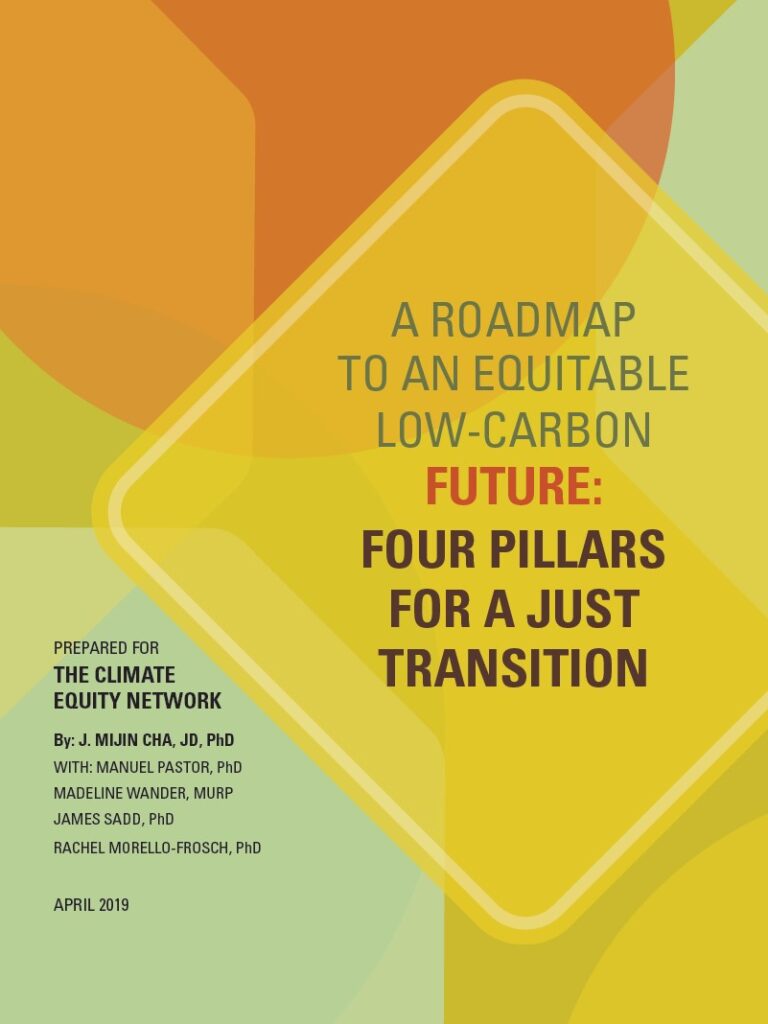
April 23, 2019
By: J. Mijin Cha
With: Manuel Pastor, Madeline Wander, James Sadd, and Rachel Morello-Frosch
Prepared for the Climate Equity Network
In the face of the looming climate crisis, any chance of staving off even worst impacts from climate change depends on significant reductions in GHG emissions and a move from a fossil fuel-based economy to a low-carbon economic future. California is already on the path to a low-carbon future and targeted, deliberate policy implementation will move the state toward an equitable one.
As we transition away from fossil fuels, environmental justice communities—or those that have disproportionately suffered from exposure to environmental health hazards—should be prioritized for the opportunities of a low-carbon economy, including job creation and renewable energy generation. Efforts to transition workers and communities away from declining industries have generally not succeeded, making it all the more urgent to get this right. Without protecting displaced workers and expanding opportunities to other workers, transitioning to a low-carbon future will replicate the mistakes and inequalities of the extractive past and present.
Toward this vision, this report provides a roadmap for a just transition for environmental justice communities built on four pillars:
1. Strong governmental support
2. Dedicated funding streams
3. Diverse and strong coalitions
4. Economic diversification
These pillars provide a framework for protecting communities and workers in the transition to a low-carbon future. While challenging, we can create a low-carbon future that not only creates opportunity but also addresses the historic burdens of the extractive economy.



